Looking to relocate your home? Used mobile homes to be moved offer an affordable and convenient housing solution. These homes, often well-maintained and cost-effective, provide a viable option for those seeking to move or purchase a new residence. Historically, the concept of relocating homes dates back to the early 1900s when mobile homes were transported via horse-drawn carriages. Today, this practice has evolved into a streamlined process involving modern equipment and transportation methods. In this article Used Mobile homes to be Moved we will tell you where to find these hidden treasures.
Whether you’re in search of an economical living space or considering a strategic relocation, used mobile homes to be moved present an intriguing alternative worth exploring. Stay tuned as we delve into the benefits and considerations associated with these movable dwellings.
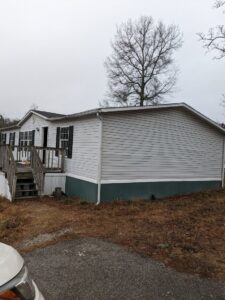
Understanding the Mobile Home Moving Process
State Regulations
Each state has its own regulations regarding moving mobile homes. This means that before embarking on this process, it’s crucial to research and understand the specific requirements of the state. You will need to know where the home is currently located and where it will be moved to. For example, some states may require permits or inspections before a mobile home can be relocated.
When moving a used mobile home from one state to another, it’s essential to comply with both states’ regulations. Failure to do so could result in delays, fines, or even legal issues.
Professional Movers vs DIY Options
Deciding between hiring professional movers or opting for a do-it-yourself (DIY) approach is an important consideration when relocating a used mobile home. Professional movers are experienced in handling these types of moves and have access to specialized equipment. They have access to such things as trailers and trucks designed for transporting mobile homes.
On the other hand, individuals who choose the DIY route should be prepared for significant challenges such as obtaining necessary permits. Also you should be aware of securing appropriate transportation equipment, and ensuring compliance with all relevant regulations. While DIY options may seem cost-effective at first glance, they often entail more time-consuming processes and potential complications.
It’s worth noting that even if homeowners decide to hire professionals for the move itself, they might still handle certain aspects independently—such as preparing their property for the relocation.
Considerations for Transporting Used Mobile Homes
Transporting a used mobile home involves several considerations beyond simply loading it onto a trailer. One crucial factor is ensuring that the chosen route is suitable for transporting large structures like mobile homes; this includes checking bridge weight limits and road conditions along the way.
Securing proper insurance coverage during transport is vital in case of any unforeseen accidents or damages en route. The structural integrity of the home must also be assessed prior to movement; any weaknesses or vulnerabilities should be addressed beforehand to prevent damage during transit.
Lastly, homeowners need to consider where their mobile home will be placed upon arrival at its new location—whether within an existing park/community or on private land—and ensure that all necessary preparations are made at that site before delivery.
Options for Purchasing Used Manufactured Homes
Exploring Local Dealerships and Online Marketplaces
When looking to purchase used mobile homes that need to be moved, exploring local dealerships and online marketplaces is a great place to start. Local dealerships often have a variety of options available for viewing in person. This allows you to inspect the homes closely, check for any damages, and get a feel for the layout. On the other hand, online marketplaces provide a wide range of choices from different locations, giving you access to more options without geographical limitations.
Visiting local dealerships can give you an opportunity to physically inspect the mobile homes, ensuring they are in good condition and meet your requirements. You can also ask questions directly to sales representatives or owners about the history of each home.
Online marketplaces such as Craigslist or Facebook Marketplace offer convenience by allowing you to browse through numerous listings from various sellers across different areas. This gives you access to a broader selection of used manufactured homes at different price points.
Factors to Consider When Buying a Used Mobile Home
Several factors should be considered when purchasing used mobile homes that need moving. First, it’s essential to carefully inspect the home’s condition, including its structure, plumbing system, electrical wiring, roof integrity, and overall maintenance history. Consider whether any renovations or repairs will be needed before relocating the home.
Another crucial factor is verifying if there are any zoning restrictions on moving used manufactured homes into specific areas or communities. Some neighborhoods may have regulations regarding older mobile homes or certain size limitations for relocated properties.
Furthermore, understanding transportation costs associated with moving used mobile homes is vital. The distance between the current location of the home and its new destination impacts transportation expenses significantly.
Financing Options for Purchasing a Used Manufactured Home
Financing plays a significant role in acquiring used manufactured homes that need relocation. Traditional mortgage lenders may not always offer financing options for these types of properties due to their mobility nature; however specialized lenders exist who cater specifically towards financing used mobile/manufactured housing purchases.
In some cases where land ownership accompanies purchasing used manufactured/mobile houses (e.g., permanent foundation), traditional mortgage loans might become viable but require meeting strict lending criteria similar as those applied when buying conventional stick-built houses.
It’s important also consider personal loans which could serve as an alternative option especially when dealing with smaller amounts required.
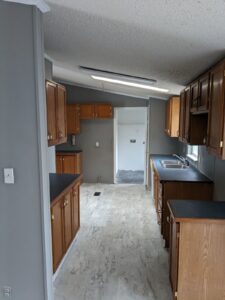
Resources for Buying and Selling Used Mobile Homes
Real Estate Agents
One valuable resource is real estate agents who specialize in mobile homes. These professionals have the expertise and network to help individuals navigate the complexities of the mobile home market. They can assist with pricing, marketing, and negotiating deals for both buyers and sellers. They are well-versed in local regulations and zoning laws that may impact the buying or selling process.
Real estate agents specializing in mobile homes often have access to a pool of potential buyers or sellers looking for such properties. This can significantly increase the chances of finding suitable matches for those interested in buying or selling a used mobile home. By leveraging their knowledge and connections, individuals can streamline the process of purchasing or offloading a manufactured home.
Online Platforms
Online platforms provide an efficient way to list and sell used mobile homes. Websites dedicated to real estate listings allow users to create detailed postings complete with photos, descriptions, and contact information. These platforms attract a wide audience of potential buyers actively searching for mobile homes.
One notable benefit of using online platforms is their reach – listings can be seen by people from various locations who might be interested in purchasing a used mobile home. Moreover, these websites often offer tools that facilitate communication between buyers and sellers, making it easier to arrange viewings, negotiate prices, and finalize transactions.
Legal Aspects
Understanding the legal aspects associated with buying or selling mobile homes is crucial before engaging in any transactions. Various laws govern these types of property transfers; therefore, seeking legal counsel specializing in real estate law is advisable.
Buyers need clarity on ownership rights when acquiring a used manufactured home as well as understanding any restrictions related to moving it from its current location if necessary. Sellers must ensure compliance with disclosure requirements regarding the condition of the property being sold.
In addition to legal considerations specific to mobile homes, there are general real estate laws. These apply universally across different types of properties which should also be taken into account during transactions involving manufactured housing.
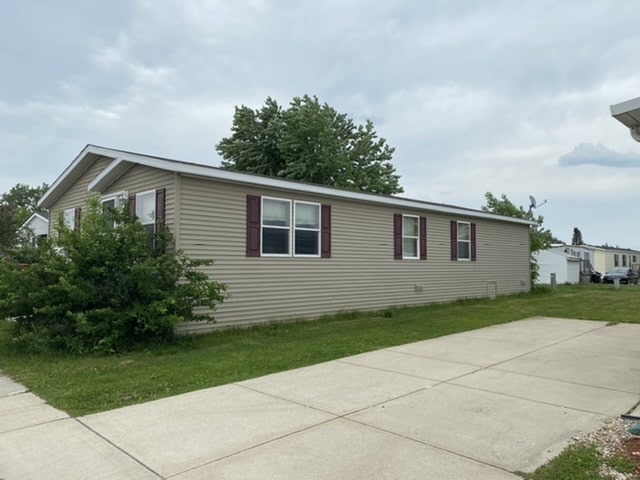
Preparing a Mobile Home for Safe Transportation
Ensuring Safety and Stability
Before moving a used mobile home, it’s crucial to inspect its structural integrity. Look for any signs of damage, such as cracks in the walls or ceilings, sagging floors, or loose roofing materials. These issues can compromise the safety and stability of the home during transportation. It’s essential to address any structural concerns before attempting to move the mobile home.
Inspecting the undercarriage is also vital. Check for rust, corrosion, or any signs of wear and tear on the axles and wheels. Any damage to these components could lead to serious problems while transporting the home.
It’s important to ensure that all doors and windows are securely fastened before moving a mobile home. Loose fixtures can pose a significant risk during transportation.
Hiring Professional Inspection Services
If you’re unsure about assessing the structural integrity of a used mobile home yourself, consider hiring professional inspection services. An experienced inspector can thoroughly evaluate the condition of your mobile home and provide valuable insights. They will inform you of any necessary repairs or reinforcements needed prior to relocation.
Navigating Lot Rent Challenges When Relocating
Understanding Lease Agreements
When dealing with used mobile homes to be moved, it’s crucial to understand the lease agreements and lot rent terms. Lease agreements typically outline the responsibilities of both the park management and the homeowner. It’s important to review these documents carefully as they contain vital information about lot rent, maintenance obligations, and potential penalties for breaking the lease.
Lease agreements often specify how much notice must be given before moving a mobile home out of the park. By understanding these terms, homeowners can avoid unexpected fees or legal issues when relocating their used mobile homes. For example, some parks require a 30-day notice before moving a mobile home off-site.
It’s also essential to comprehend the financial aspects related to lot rent. Some leases may include clauses that address transferring ownership and responsibilities if a homeowner decides to sell their used mobile home instead of moving it.
Notifying Park Management
Before relocating a used mobile home, homeowners should notify the park management about their intention to move. This step is crucial in maintaining transparency and fulfilling any requirements outlined in the lease agreement.
By informing the park management early on, homeowners can ensure compliance with any specific procedures or regulations set by the community. This communication allows for discussions regarding potential options for transferring or terminating the lease agreement as part of planning for relocation.
Notifying park management also provides an opportunity for homeowners to inquire about any necessary documentation or approvals required prior to moving their used mobile homes from one location to another within or outside of a particular community.
Exploring Transfer Options
When facing relocation challenges with used mobile homes, exploring options for transferring leases becomes essential. In some cases, homeowners may have an opportunity to transfer their existing lease agreement directly to a new owner who wishes to purchase and move into their current unit.
This option not only benefits current homeowners by easing them from ongoing financial commitments but also offers prospective buyers an opportunity without having direct involvement in negotiating new leasing terms with park management.
Check out our article: Moving a Mobile Home From a Park
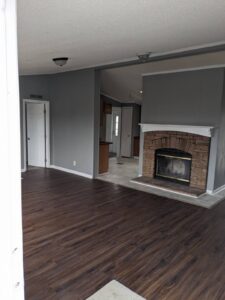
Selecting Owner Operator Services for Moving
Researching Reputable
It’s essential to start by seeking recommendations from local manufactured home dealers or park managers. You can explore online platforms that specialize in connecting private buyers with reliable owner operators. Look for reviews and feedback from previous clients to gauge the quality of service provided.
Finding an owner operator with a proven track record in relocating used mobile homes is crucial. Consider reaching out directly to these professionals and asking about their experience, certifications, and specific services they offer. It’s also beneficial to inquire about their familiarity with the regulations and requirements associated with moving mobile homes within your state or region.
It’s important that you ensure the operator has ample experience working on projects similar to yours, as this will guarantee a smoother relocation process.
Obtaining Quotes
After identifying potential owner operators specializing in moving used mobile homes, obtaining quotes from each is crucial. Request detailed estimates that outline all the services included in the move, such as disassembling, transporting, and reassembling the home at its new location. Make sure there are no hidden costs or additional fees not initially disclosed.
Comparing these quotes will help you make an informed decision based on both cost-effectiveness and comprehensive service offerings. While considering affordability is vital, remember that opting for extremely low-cost services may compromise the quality of workmanship or insurance coverage provided.
Consider requesting references from previous clients or viewing testimonials regarding their experiences working with each operator before finalizing your choice.
Insurance Coverage and Permits
Before engaging any owner operator services for moving a used mobile home, ensuring adequate insurance coverage and necessary permits are in place is non-negotiable. Verifying that the chosen professional possesses liability insurance specifically tailored for transporting manufactured housing safeguards against potential damages during transit.
Moreover, inquire about any required permits needed for relocating a used mobile home within your area. A reputable owner operator should be well-versed in securing these permits on behalf of their clients while adhering strictly to local regulations governing such moves.
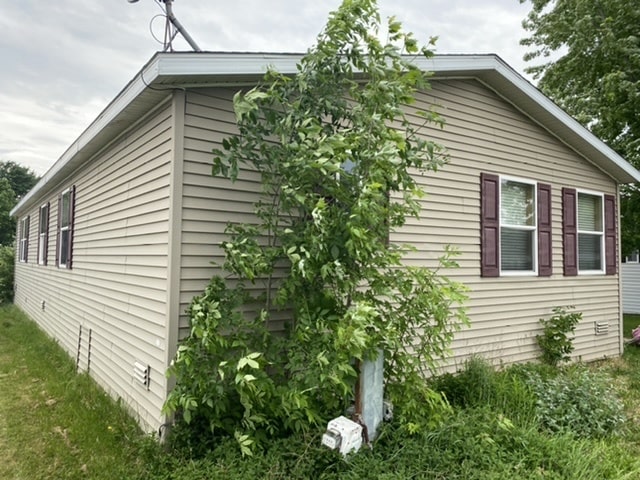
Ensuring Quality in Affordable Mobile Homes
Inspecting Condition
When considering used mobile homes to be moved, it’s crucial to thoroughly inspect their condition. Look for signs of wear and tear, such as cracks, leaks, or structural damage. Check the plumbing, electrical systems, and appliances to ensure they are in good working order. A comprehensive inspection can help you avoid unexpected repair costs after the purchase.
It is important to check for any signs of water damage as this could indicate potential issues with the roof or plumbing. Examine the flooring for soft spots or warping which may suggest underlying problems that need attention.
Renovations and Upgrades
Considering renovations or upgrades is an effective way to enhance the quality of a used mobile home. This could involve replacing outdated fixtures, upgrading insulation for better energy efficiency, or modernizing the interior design. By investing in these improvements, you can increase both the comfort and value of your mobile home.
Renovating the kitchen and bathrooms can significantly improve not only functionality but also aesthetics. Upgrading windows and doors can enhance security while also improving insulation which leads to lower energy bills.
Evaluating Reputation
Evaluating the reputation of manufacturers and previous owners is essential when purchasing a used mobile home. Researching reputable manufacturers known for producing high-quality homes ensures that you invest in a durable structure built with superior materials. Furthermore, understanding how well previous owners have maintained their properties gives insight into its overall condition.
Researching online reviews about specific manufacturers can provide valuable insights into their products’ quality and customer satisfaction levels.
Finalizing the Purchase of a Mobile Home to Move
Completing Paperwork and Title Transfer
When purchasing a used mobile home to be moved, it’s crucial for the buyer to complete all necessary paperwork. This includes ensuring that the title transfer is clear and legally binding. The buyer should carefully review all documents related to the sale, such as the bill of sale and any required permits.
Before finalizing the purchase, it’s essential for both parties to agree on a clear title transfer process. The seller must provide all relevant documentation, including proof of ownership and any outstanding liens or loans on the property. Once this is confirmed, both parties can proceed with transferring ownership through legal channels.
Scheduling Transportation and Coordinating Logistics
After completing the paperwork, scheduling transportation becomes a key step in moving a used mobile home. The buyer needs to coordinate with professional movers or transport services specializing in relocating mobile homes. It’s important to ensure that these professionals are experienced in handling this type of move.
The logistics involved in transporting a used mobile home can be complex, requiring careful planning and coordination between the buyer and seller. Factors such as route planning, obtaining necessary permits for moving oversized loads, and adhering to local regulations must be considered during this phase.
Making Arrangements for Setup at New Location
Once transportation logistics are sorted out, making arrangements for setting up the mobile home at its new location becomes paramount. This involves preparing the site where the home will be placed by ensuring proper foundations or supports are in place before its arrival.
The setup process may also involve connecting utilities such as water, electricity, and sewage systems once the mobile home has been moved into position at its new location. Additionally,**the buyer should consider hiring professionals familiar with installing manufactured homes if they lack experience themselves.
Overcoming Challenges in Selling Mobile Homes with Land
Advantages of Owning a Mobile Home on Land
Owning a used mobile home to be moved onto your own land offers several benefits. Firstly, it provides an affordable housing option for individuals or families looking to become homeowners without breaking the bank. Owning the land where the mobile home is placed gives you a sense of ownership and stability. You have control over your living space and can make modifications according to your preferences. Moreover, having a mobile home on land allows for more privacy compared to living in a rented community or park.
Mobile homes on private land also offer potential buyers the opportunity to enjoy outdoor spaces such as gardens, yards, or patios that may not be available in traditional apartment living. This additional outdoor space can enhance their quality of life by providing room for recreation and relaxation right outside their doorstep.
Furthermore, owning land along with a mobile home often represents an investment opportunity. The value of both the property and the dwelling could appreciate over time, offering financial security and potential profits if owners decide to sell in the future.
Marketing Strategies
To attract potential buyers for used mobile homes that are meant to be moved onto new properties, strategic marketing tactics play a crucial role. Utilizing online platforms like real estate websites and social media can help reach interested parties who are actively searching for this type of property arrangement.
Highlighting key selling points such as affordability, customization options due to ownership of land, and increased privacy should be central themes in any marketing materials or listings related to these types of properties. Emphasizing these advantages through high-quality photographs showcasing both the mobile home and its surrounding environment can significantly impact buyer interest.
Moreover, creating engaging descriptions that underline how owning both land and a mobile home brings about financial stability while providing ample living space will appeal strongly to prospective buyers seeking long-term solutions for their housing needs.
Understanding Property Requirements
When considering moving a used mobile home onto new property,** zoning regulations must be carefully researched beforehand. Different areas have specific requirements regarding where mobile homes can be placed within residential zones based on factors like size restrictions and infrastructure specifications.
If you are looking for used mobile homes check out US Mobile Home Pros today for a great selection of used mobile homes or MH Village
Summary
Congratulations on reaching the end of our guide to buying and selling used mobile homes for relocation! You’ve gained valuable insights into the mobile home moving process, purchasing options, resources, transportation preparation, lot rent challenges, service selection, quality assurance, and finalizing the purchase. Now armed with this knowledge, you’re better equipped to navigate the complexities of relocating a mobile home. Whether you’re buying or selling, remember to prioritize safety, affordability, and quality as you embark on this journey.
Ready to make your move? Take the next step with confidence and put your newfound knowledge into action. Happy relocating!
Frequently Asked Questions
How do I prepare a mobile home for safe transportation?
To prepare a mobile home for safe transportation, you should secure all loose items inside the home, disconnect utilities, and ensure that the wheels and axles are in good condition. It’s essential to obtain any necessary permits and hire a professional moving service.
What are the challenges in selling mobile homes with land?
Challenges in selling mobile homes with land include navigating zoning regulations, ensuring proper documentation of ownership, and finding buyers who are interested in purchasing both the home and the land. It’s important to work with real estate professionals familiar with this type of transaction.
What options are available for purchasing used manufactured homes?
You can purchase used manufactured homes through dealerships specializing in pre-owned units or explore private sales from individuals looking to sell their mobile homes. Each option has its own considerations regarding pricing, inspection processes, and potential negotiations.
How can I navigate lot rent challenges when relocating my mobile home?
When relocating your mobile home to a new lot or community, it’s crucial to carefully review lease agreements regarding lot rent. Understanding any potential rate increases or additional fees is important before making your decision. Open communication with the new park management is also key.
Why is it essential to ensure quality when buying affordable mobile homes?
Ensuring quality when purchasing an affordable mobile home helps avoid costly repairs down the line. Thorough inspections of structural integrity, plumbing, electrical systems, and overall condition can prevent unexpected expenses after acquiring the property. Quality directly impacts long-term satisfaction with your purchase.
You may be interested in these articles:
Living Spaces for Mobile Homes vs Stick Built Homes
Mobile Home Blue Book: Understanding Value & Maximizing Returns
Mobile Home Wiring: A Comprehensive Guide to Electrical Basics and Safety

